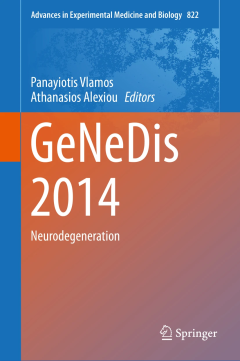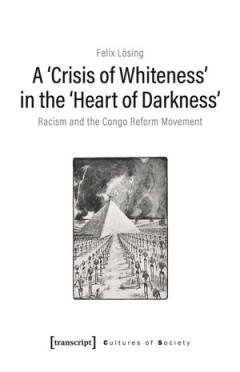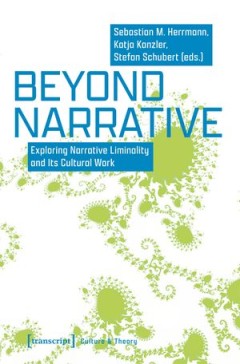Filter by

GeNeDis 2014
The 1st World Congress on Geriatrics and Neurodegenerative Disease Research (GeNeDis 2014), will focus on recent advances in geriatrics and neurodegeneration, ranging from basic science to clinical and pharmaceutical developments and will provide an international forum for the latest scientific discoveries, medical practices and care initiatives. Advances information technologies will be discus…
- Edition
- -
- ISBN/ISSN
- 978-3-319-08926-3
- Collation
- -
- Series Title
- -
- Call Number
- 611.83

Nanomaterials for Security
This book comprises 25 contributions focussed on nanotechnology for sensor applications. They stem from presentations at the NATO Advanced Research Workshop "Nanomaterials for Security". The chapters cover a broad but interrelated range of topics, including nanophysics, nanotechnology, nanomaterials, sensors, biosensor security systems, and explosive detection. They reflect many significant adv…
- Edition
- 1
- ISBN/ISSN
- 1874-6489
- Collation
- XIX, 330
- Series Title
- NATO Science for Peace and Security Series A: Chemistry and Biology
- Call Number
- -

Critical by Design?: Genealogies, Practices, Positions
In its constructive and speculative nature, design has the critical potential to reshape prevalent socio-material realities. At the same time, design is inevitably normative, if not often violent, as it stabilises the past, normalises the present, and precludes just and sustainable futures. The contributions rethink concepts of critique that influence the field of design, question inherent blin…
- Edition
- -
- ISBN/ISSN
- 9783839461044
- Collation
- -
- Series Title
- -
- Call Number
- 391 CRI c

Muscular Dystrophy
This practical and concise guide offers an overview of muscular dystrophy's complicated features, treatment options and general resources. New treatments and a greater understanding of proteins and structures associated with MD are discussed along with long term patient care. Also included are clinical and developmental challenges within the current regulatory landscape and recent scientific an…
- Edition
- 1
- ISBN/ISSN
- 978-3-319-17361-0
- Collation
- XXIV, 191
- Series Title
- -
- Call Number
- -

Myths, Symbols and Legends of Solar System Bodies
This book is an amateur astronomer’s guide to the mythology and symbolism associated with the celestial bodies in the Solar System, and even includes some of the legendary tales of people who had or have a connection with these objects. It explores different cultures (for example, the Greco-Roman and the Norse) and different times and how stories were used to explain the worlds they saw above…
- Edition
- 1
- ISBN/ISSN
- 978-1-4614-7066-3
- Collation
- XVI, 234
- Series Title
- The Patrick Moore Practical Astronomy Series
- Call Number
- -

A Crisis of Whiteness‹ in the ›Heart of Darkness: Racism and the Congo Re…
The British and American Congo Reform Movement (ca. 1890-1913) has been praised extensively for its ›heroic‹ confrontation of colonial atrocities in the Congo Free State. Its commitment to white supremacy and colonial domination, however, continues to be overlooked, denied, or trivialised. This historical-sociological study argues that racism was the ideological cornerstone and formed the m…
- Edition
- -
- ISBN/ISSN
- 9783839454985
- Collation
- -
- Series Title
- -
- Call Number
- 302.5 LOS c

Nanomaterials and Nanoarchitectures
The current work consists of nine contributions describing recent progress in the interdisciplinary of Nanoscience, which involves physics, chemistry, engineering, biology and medicine and one essay outlining some important historical and socioeconomic factors pertaining to recent developments in nanoscale science and technology. All 10 chapters have been written by eminent experts in their …
- Edition
- 1
- ISBN/ISSN
- 1874-6519
- Collation
- XIV, 343
- Series Title
- NATO Science for Peace and Security Series C: Environmental Security
- Call Number
- -

Competition in World Politics: Knowledge, Strategies and Institutions
The »return of great power competition« between (among others) the US, China, Russia and the EU is a major topic in contemporary public debate. But why do we think of world politics in terms of »competition«? Which information and which rules enable states and other actors in world politics to »compete« with one another? Which competitive strategies do they pursue in the complex environme…
- Edition
- -
- ISBN/ISSN
- 9783839457474
- Collation
- -
- Series Title
- -
- Call Number
- 320 COM c

Beyond Narrative: Exploring Narrative Liminality and Its Cultural Work
This book calls for an investigation of the ›borderlands of narrativity‹ — the complex and culturally productive area where the symbolic form of narrative meets other symbolic logics, such as data(base), play, spectacle, or ritual. It opens up a conversation about the ›beyond‹ of narrative, about the myriad constellations in which narrativity interlaces with, rubs against, or morphs i…
- Edition
- -
- ISBN/ISSN
- 9783839461303
- Collation
- -
- Series Title
- -
- Call Number
- 302.23 BEY b

Natural Resources and Control Processes
This edited book has been designed to serve as a natural resources engineering reference book as well as a supplemental textbook. This volume is part of the Handbook of Environmental Engineering series, an incredible collection of methodologies that study the effects of pollution and waste in their three basic forms: gas, solid, and liquid. It complements two other books in the series including…
- Edition
- 1
- ISBN/ISSN
- 978-3-319-26798-2
- Collation
- XII, 633
- Series Title
- Handbook of Environmental Engineering
- Call Number
- -
 Computer Science, Information & General Works
Computer Science, Information & General Works  Philosophy & Psychology
Philosophy & Psychology  Religion
Religion  Social Sciences
Social Sciences  Language
Language  Pure Science
Pure Science  Applied Sciences
Applied Sciences  Art & Recreation
Art & Recreation  Literature
Literature  History & Geography
History & Geography